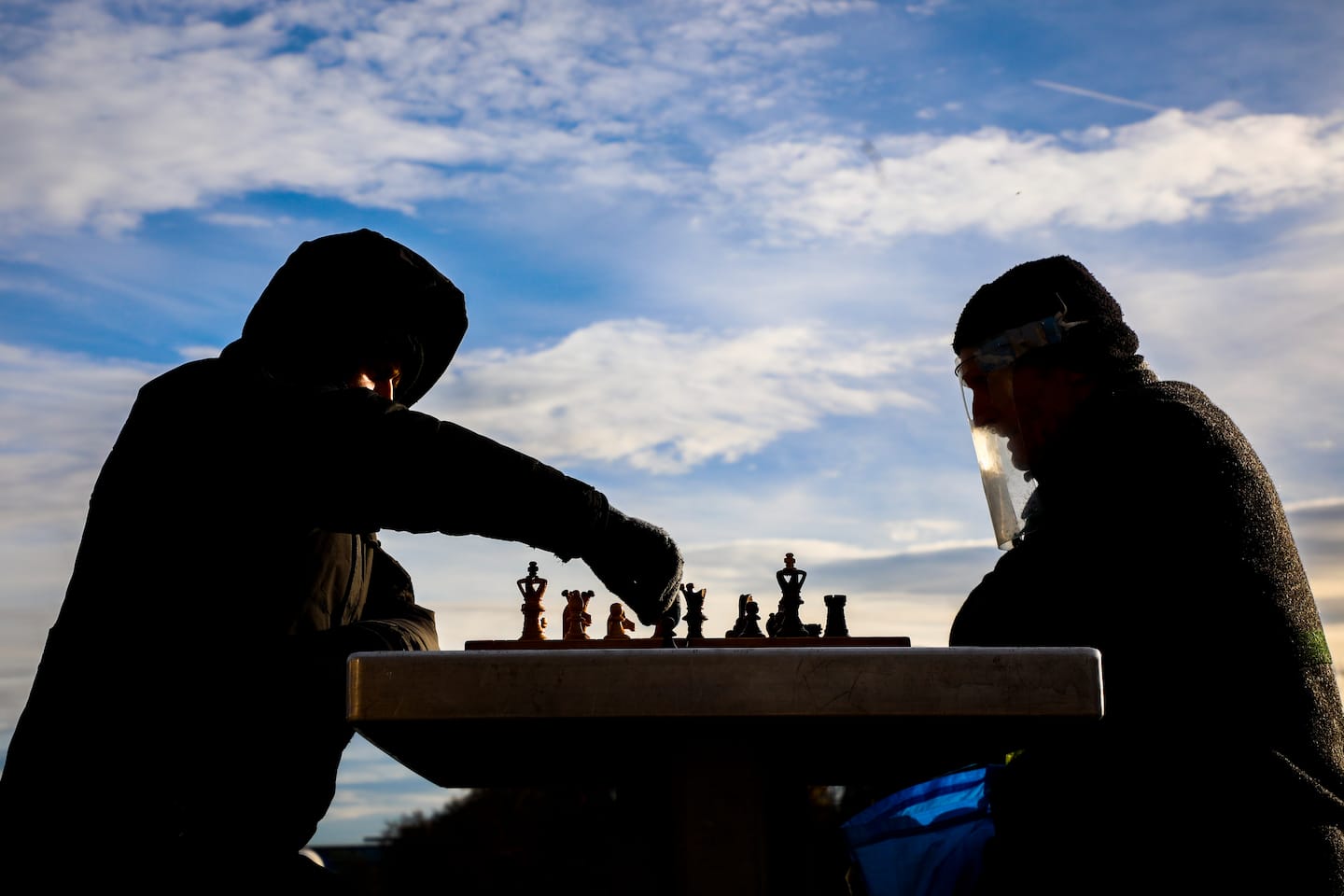The pandemic sparked interest in chess. ‘The Queen’s Gambit’ made it explode.

So she kept playing, ignoring her friend’s texts, pursuing the stranger’s king. She won, eventually. And when at last she joined her incredulous friend, Lucien shrugged and blamed her apartment building’s shockingly slow elevator.
Eight months ago, newly shut in and under siege by the coronavirus, people around the world diverted their worries and experimented with newfound free time. Some fed flour to slime, telling themselves this was the beginning of a sourdough empire; others dusted off musical instruments, screenplay ideas, long to-do lists. Lucien is among the millions who learned, played and gradually became consumed by chess. Playing is therapy. Winning is a high.
“I know it sounds really nerdy,” she would say. “I feel it, and it makes me feel exhilarated.”
These feelings have only intensified recently, a month after Netflix began streaming the original series “The Queen’s Gambit.” Set in the 1960s, the show’s main character is an orphaned young woman named Beth Harmon, a chess prodigy who climbs the American and international circuits while battling personal trauma, self-doubt and addiction. Netflix said this week that 62 million households have watched the series since its Oct. 23 premiere; the service said it is the most-watched show in dozens of countries.
The show has fueled a chess renaissance that actually began in the spring. Since March, chess.com has added nearly 13 million new members, according to Nick Barton, the platform’s director of business development. More than 2.3 million of them have joined in the past month. An amateur chess tournament called PogChamps became a sensation in June, drawing a combined 50 million viewers on gaming platform Twitch and becoming the most-watched chess event of all time.
“It’s one of those perfect storm moments” for chess, Barton said.
Last month, “The Queen’s Gambit” pushed interest into overdrive. Chess sets are selling out, and last week an executive at a game company told NPR that October sales were up more than 1,000 percent. Seth Makowsky, who uses chess to teach mental skills training to sports stars and celebrities, said interest in his program has skyrocketed and went so far as to call roll-up chess boards an unlikely fashion item.
“It’s bigger than chess,” said Makowsky, whose clients include Houston Texans quarterback Deshaun Watson, actress Cameron Diaz and the U.S. artistic swimming team. “It’s an exciting moment for society in this way, because it’s making smart cool.”
Lucien, a young attorney at Canadian law firm Borden Ladner Gervais, said she identified with the fictional Harmon for reasons beyond chess. After the character discovers her talents, she must quickly find her footing in an unfamiliar, and male-dominated world. She does so tentatively at first, then confidently, bolstered by the support of mentors.
“She kind of walks in there,” Lucien said of Harmon, “led by the whim of her intellect and her love for something, and doesn’t let these barriers get in her way. That’s very empowering, especially in all these spaces where you feel like you don’t want to stand out too much because you want to be included and not excluded. And she tells you that’s okay.”
Lucien was a casual player when she was younger. She would watch as two neighborhood boys set up a board at a playground, jockeying for position and the all-important center squares. Sometimes the boys played in father-son chess tournaments, and Lucien secretly wanted to go, too. But her father was busy with work, she said; though Lucien and her younger sister, Irma, tinkered with the game, they never developed a particularly intense chess rivalry.
“It wasn’t really anything that could happen at the time,” she said.
Early in the pandemic, Lucien went on long bike rides and caught up on podcasts. She downloaded the chess.com app and played casual games. The weeks turned to months, and each morning she found herself completing chess puzzles as she made coffee. She would sneak in a move or two between client calls. Eventually, like Harmon, Lucien began seeing the world almost through the prism of chess.
She would notice “gambits” in the coronavirus responses in Canada and the United States, and the November presidential election highlighted opposing sides attempting dramatically different strategies. Lucien came to believe chess can symbolize life, especially that of a young professional. Advancement can follow purposeful maneuvering, to those who can identify patterns, by those willing to sacrifice.
Chaotic and polarized as these months have been, Lucien said, the world seemed to make the most sense on these 64 squares. A game is always one-on-one, guided by the same limitations and rules.
“I don’t walk into a game feeling like I’m different,” she said. “In life, it’s very hard to transcend those boundaries. You come into a room, and there’s all these assumptions on you. In chess, none of those things matter.”
Her opponents could come from anywhere in the world. On the day she kept her friend waiting, Lucien beat a player from India.
“They don’t know that I’m a woman. They don’t know what I look like,” she says. “I don’t walk into a game feeling I’m different.”
What does matter, she said, is the way playing makes her feel: productive and accomplished, even if she loses. Recently she began playing chess online against her father and issued a few challenges to colleagues. This gave Lucien an idea.
Before the pandemic, her law firm played in a volleyball league against some of Toronto’s other big firms. Her sister, Irma, worked at one of those firms.
So Lucien proposed starting “The Bay Street Chess League,” imagining a showdown between the sisters and a chance at sweet revenge. It wouldn’t exactly be a meeting of grandmasters, as in “The Queen’s Gambit.” But after these past few months, as an uncertain winter approaches, Lucien liked the idea of a fun little distraction and a reason to hope.
Read more:






